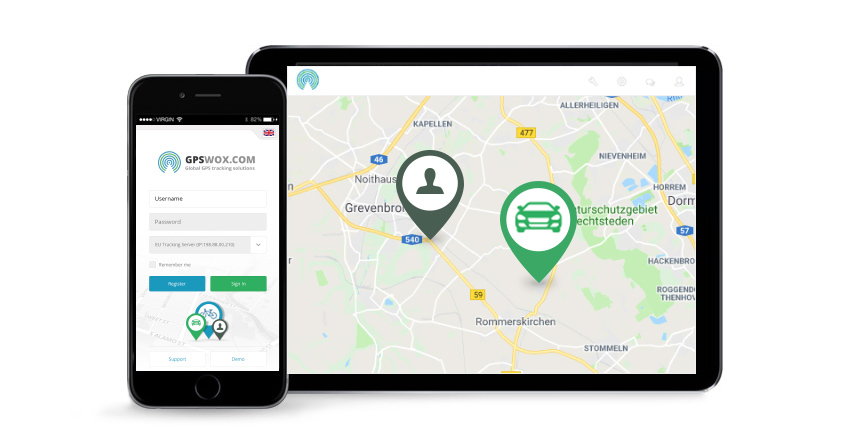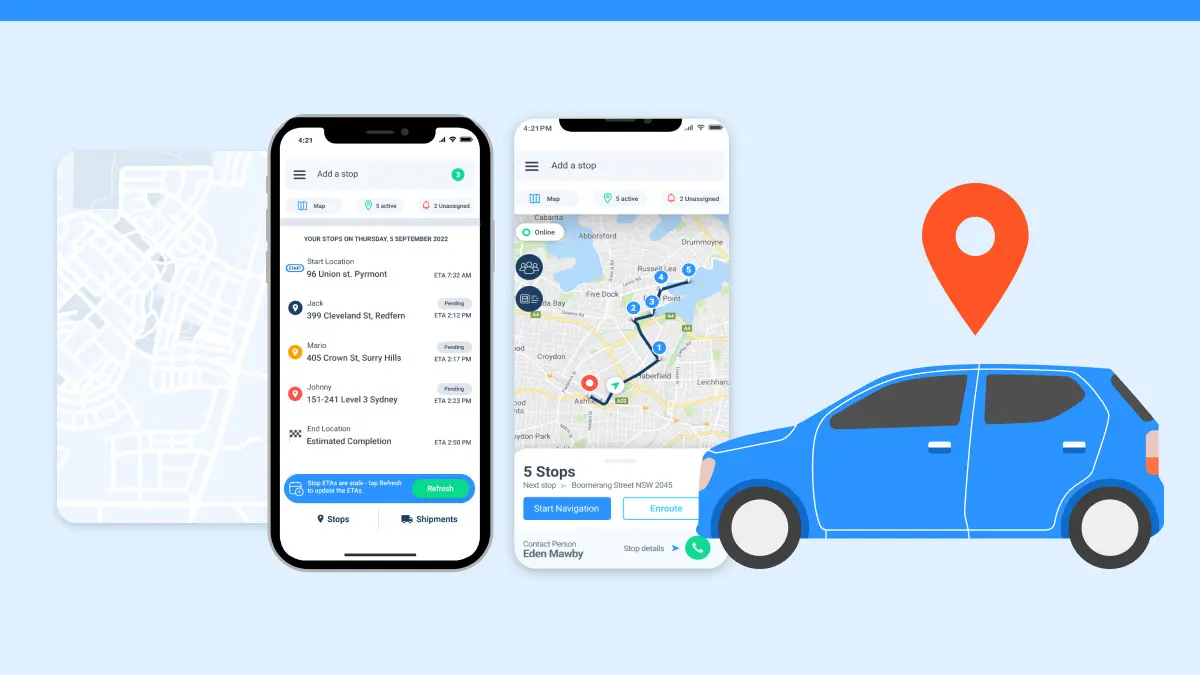Comprehensive Overview to GPS Tracking: Improve Security and Efficiency
Comprehensive Overview to GPS Tracking: Improve Security and Efficiency
Blog Article
Navigating the Future of GPS Tracking: Innovations, Difficulties, and Opportunities Ahead
As we stand at the crossroads of social ramifications and technical advancements, the landscape of GPS monitoring is poised for a transformative journey in advance. The evolution of GPS modern technology has been quick, introducing a new age of real-time monitoring capacities that assure unprecedented degrees of precision and performance. However, with wonderful development comes fantastic obligation, as information privacy concerns impend big and safety difficulties in GPS tracking raising pertinent inquiries concerning protecting delicate information. Amidst these difficulties exist covert possibilities waiting to be discovered, supplying a look into the untapped capacity of an industry at the verge of adjustment.
Development of GPS Innovation
The Advancement of GPS Modern technology has been noted by significant improvements in accuracy, coverage, and efficiency for many years. Created for army functions, General practitioner modern technology has progressed to come to be a common device in numerous industries, consisting of transportation, logistics, farming, and personal navigation. Early general practitioner systems were defined by restricted insurance coverage, lower accuracy, and bulkier equipment demands. Nonetheless, with recurring technical innovations, GPS has transitioned to much more efficient and accurate systems that provide international insurance coverage and enhanced precision.
One trick landmark in the advancement of GPS innovation was the advancement of Selective Schedule (SA) in the 1990s, which deliberately weakened the precision of civilian GPS signals. As GPS innovation continues to progress, we can anticipate more improvements in effectiveness, precision, and protection, opening up new opportunities for advancement and applications throughout various sectors.
Real-Time Monitoring Developments
Building on the developments in GPS modern technology that have revolutionized precision and coverage, real-time tracking has become an essential area of development with profound effects across numerous industries. Real-time monitoring innovations allow organizations and services to monitor possessions, vehicles, and employees instantaneously, offering useful insights for decision-making processes - gps tracking. By leveraging real-time data, firms can enhance operational efficiency, improve customer support, and ensure the safety and security of their properties
One of the essential advancements in real-time tracking is the integration of man-made knowledge and machine knowing formulas, which enable predictive analytics and anomaly discovery. These capabilities allow for proactive maintenance scheduling, course optimization, and risk mitigation techniques. The advancement of real-time tracking systems has led to the advancement of personalized dashboards and mobile applications, equipping customers to access critical info anytime, anywhere.
Data Privacy Concerns

Information personal privacy concerns encompass different facets, consisting of the storage space, sharing, and retention of area information. Businesses need to apply robust security measures to shield GPS monitoring data from cyber risks and information violations. Clear policies relating to data collection methods and the function of tracking are necessary to build trust with customers and guarantee conformity with information protection laws.
Safety And Security Obstacles in GPS Tracking
Dealing with data privacy concerns in GPS monitoring is intricately linked to reducing the safety and security tests that occur from prospective susceptabilities in the technology. Among the key safety and security challenges in GPS tracking is the danger of unapproved accessibility to sensitive area data - gps tracking. Hackers could obstruct general practitioner signals, control location info, or perhaps track people without their approval. This not only invades personal privacy yet likewise postures significant security dangers.

An additional security obstacle is the capacity for obstructing or spoofing General practitioner signals. Carrying out durable file encryption, authentication procedures, and signal confirmation protocols are vital actions in addressing these security challenges in GPS monitoring.
Emerging Opportunities in the Market
The growing field of general practitioner monitoring innovation offers a myriad of encouraging opportunities for sector growth and advancement. One vital possibility depends on the expansion of general practitioner monitoring applications beyond conventional fields. Industries such as logistics, transportation, and fleet management have actually been early adopters of GPS technology. Arising chances are currently arising in areas like health care, farming, and ecological surveillance. GPS tracking can reinvent patient care by allowing remote surveillance of important signs and ensuring prompt medical aid. In agriculture, general practitioner technology can maximize crop administration practices and boost general yield. In addition, ecological tracking can take advantage of GPS monitoring by making it possible for real-time data collection for climate research study and preservation initiatives.
In addition, the boosting demand for linked gadgets and IoT services offers a ripe possibility for GPS monitoring you can look here firms to expand their offerings and produce innovative solutions that cater to a more connected globe. By utilizing on these arising possibilities, GPS monitoring business can place themselves for sustained development and success in the vibrant landscape of the sector.
Verdict
In conclusion, the future of general practitioner tracking is marked by continual development and advancement in technology. Real-time tracking innovations and emerging opportunities present appealing leads for the industry. However, information privacy problems and protection challenges continue to hop over to here be substantial difficulties that need to be resolved. As the sector progresses, navigating these challenges will be critical to ensure the continued development and success of general practitioner monitoring innovation.
With excellent development comes wonderful obligation, as data privacy issues impend big and protection challenges in GPS monitoring raising pertinent concerns regarding safeguarding sensitive info.With the rapid expansion of GPS tracking modern technology in different sectors, dealing with data personal privacy problems has actually become a critical vital for both businesses and consumers alike. The collection of place information through General practitioner tracking increases considerable personal privacy problems, as it enables the surveillance of individuals' movements and behaviors. Services making use of GPS monitoring must focus on protecting this information to stop unapproved gain access to or misuse that could jeopardize people' personal privacy rights.
Companies need to apply robust safety and security measures to secure GPS tracking information from cyber hazards and information breaches.
Report this page